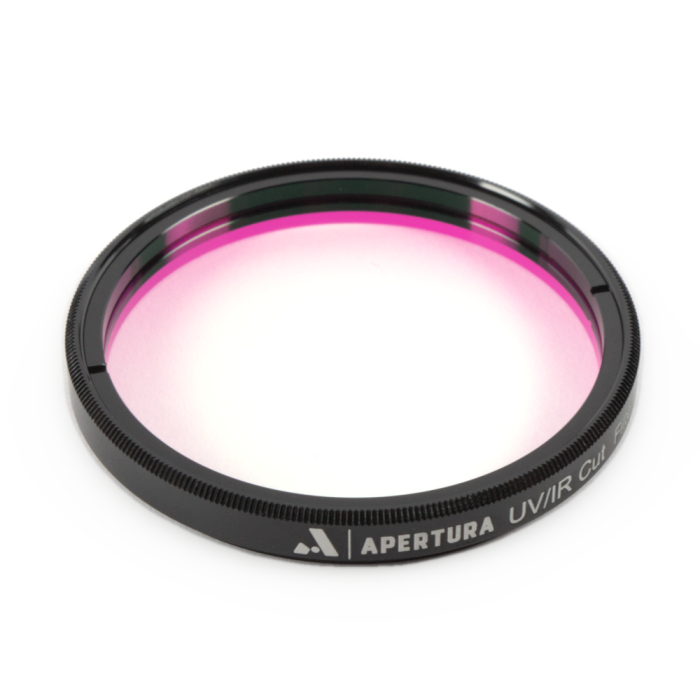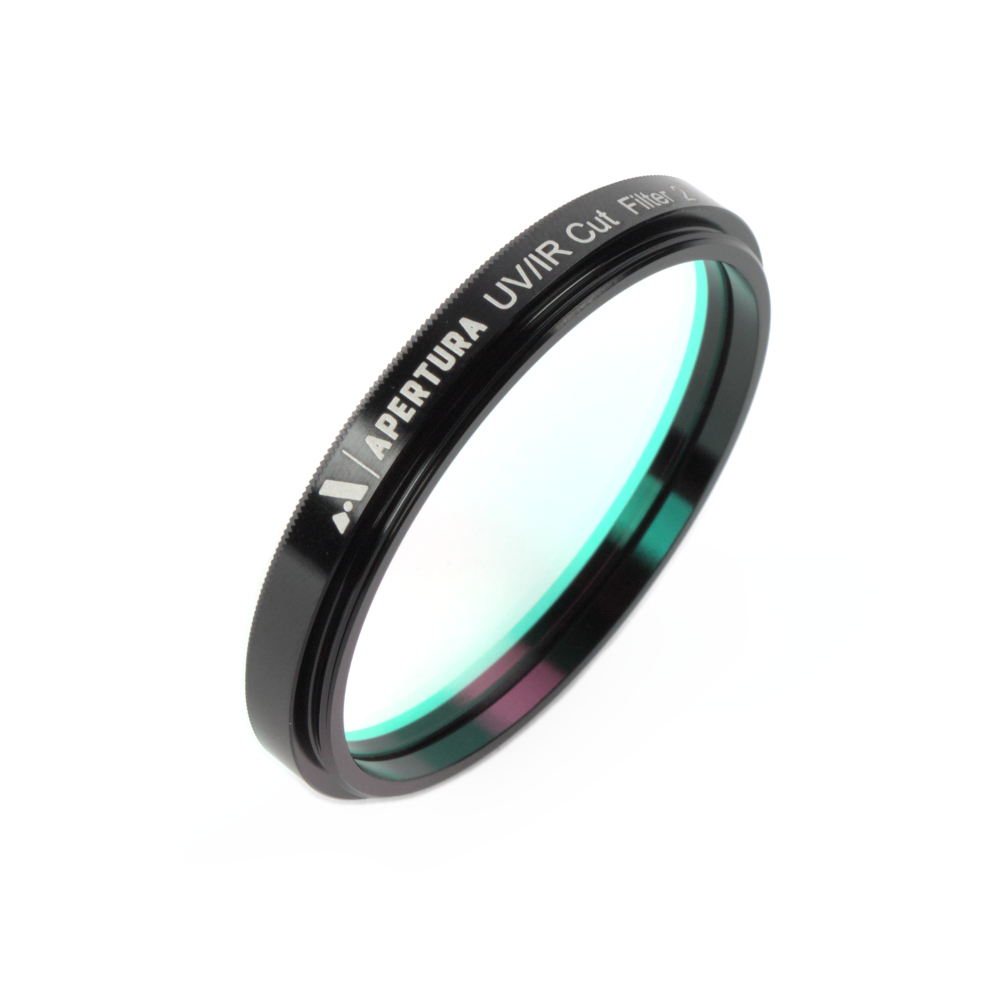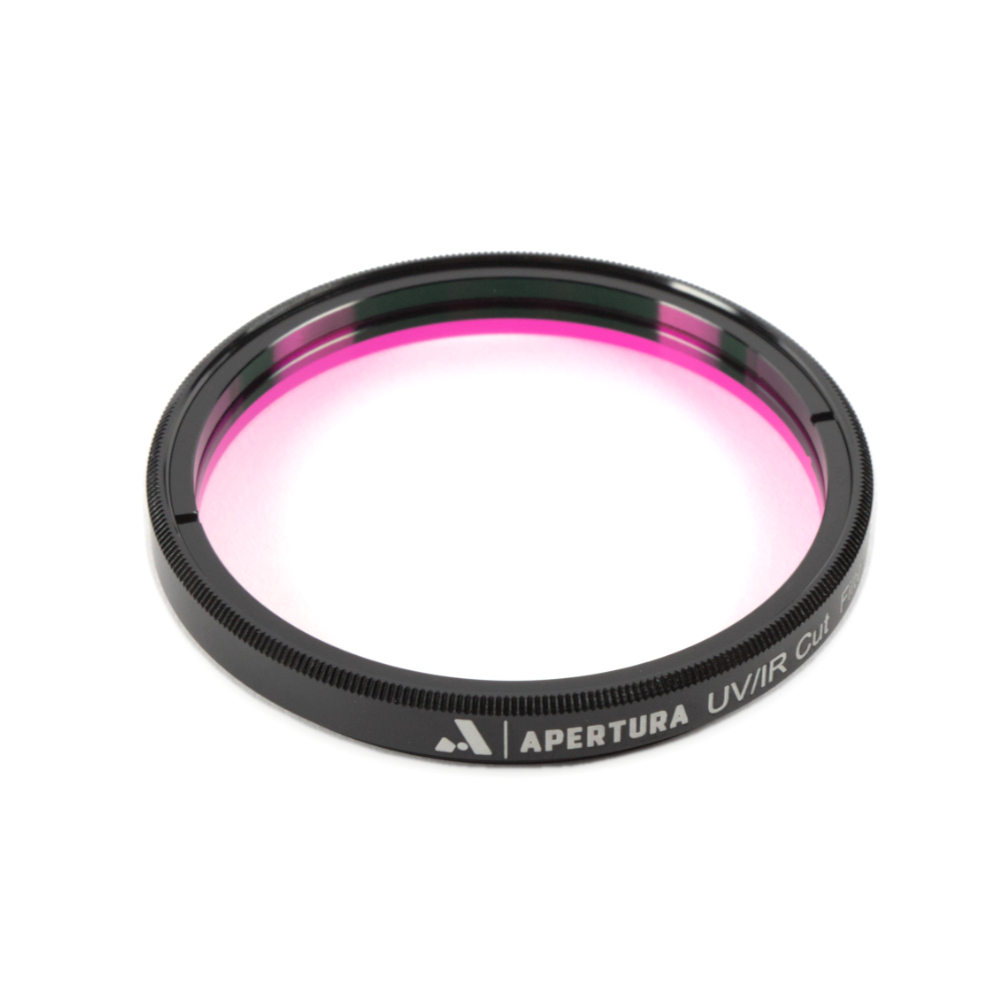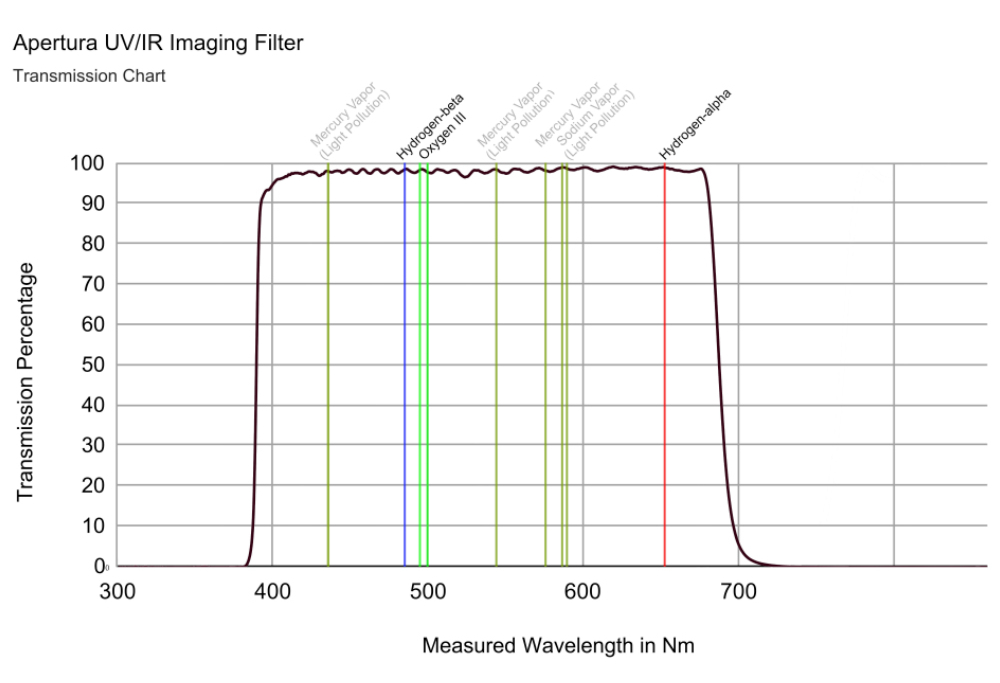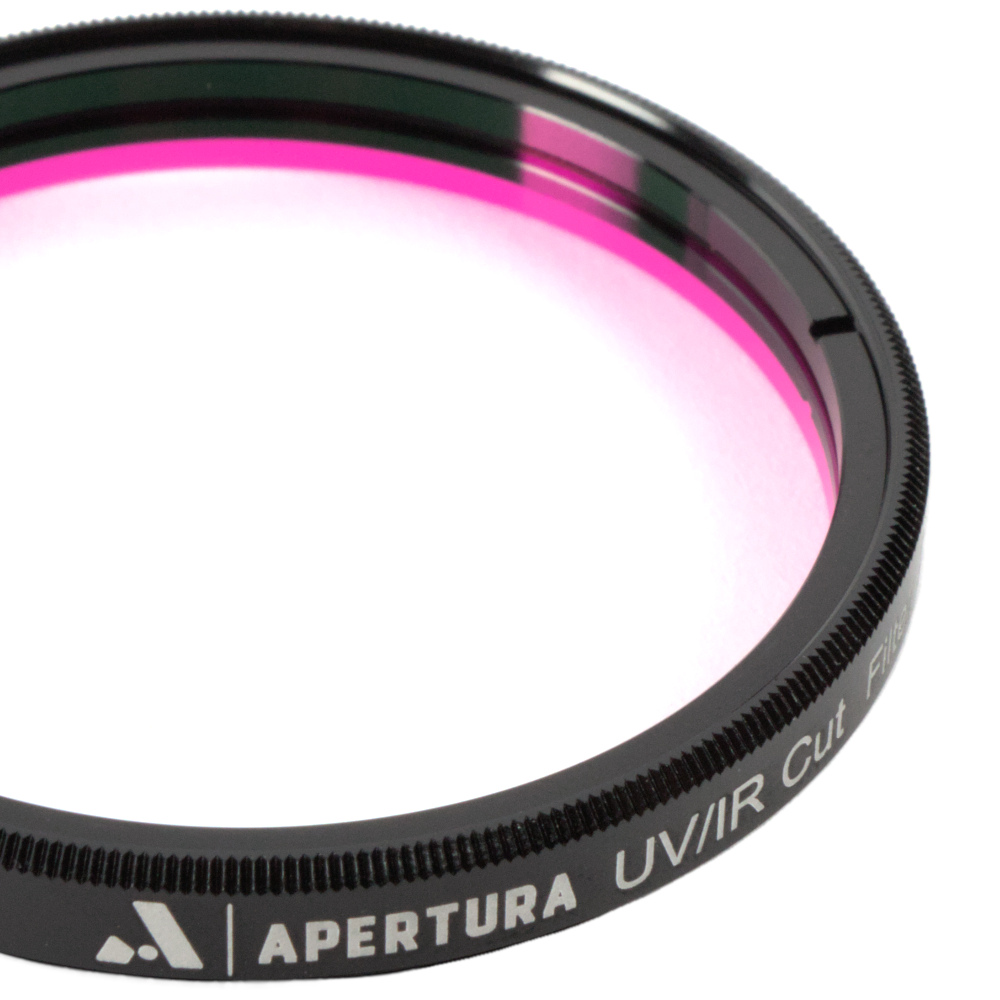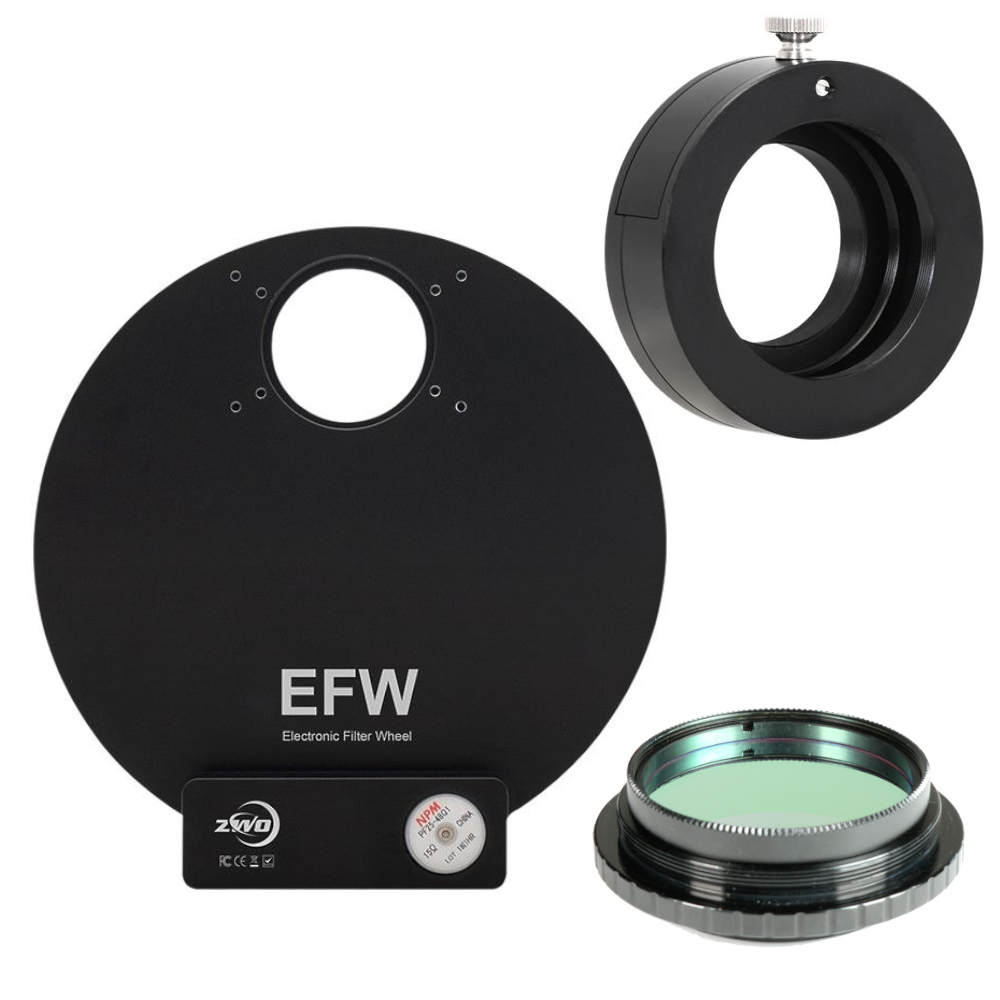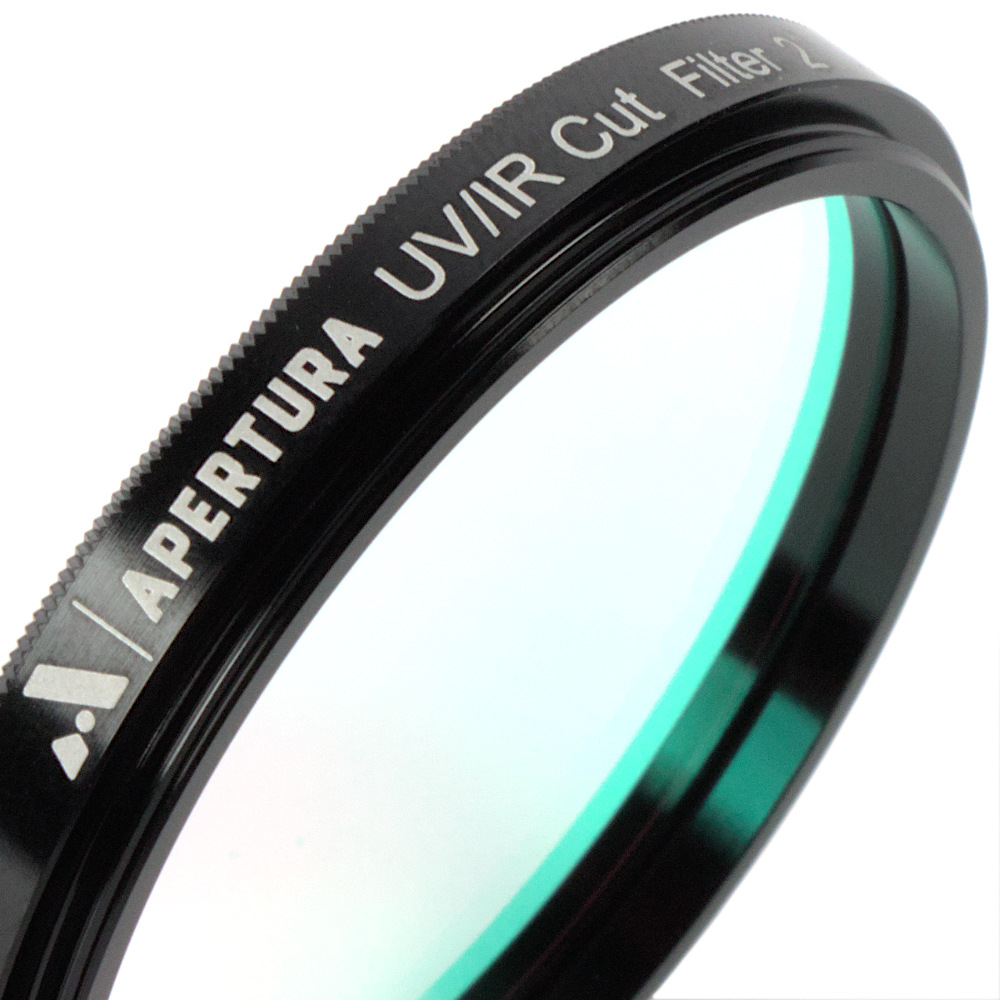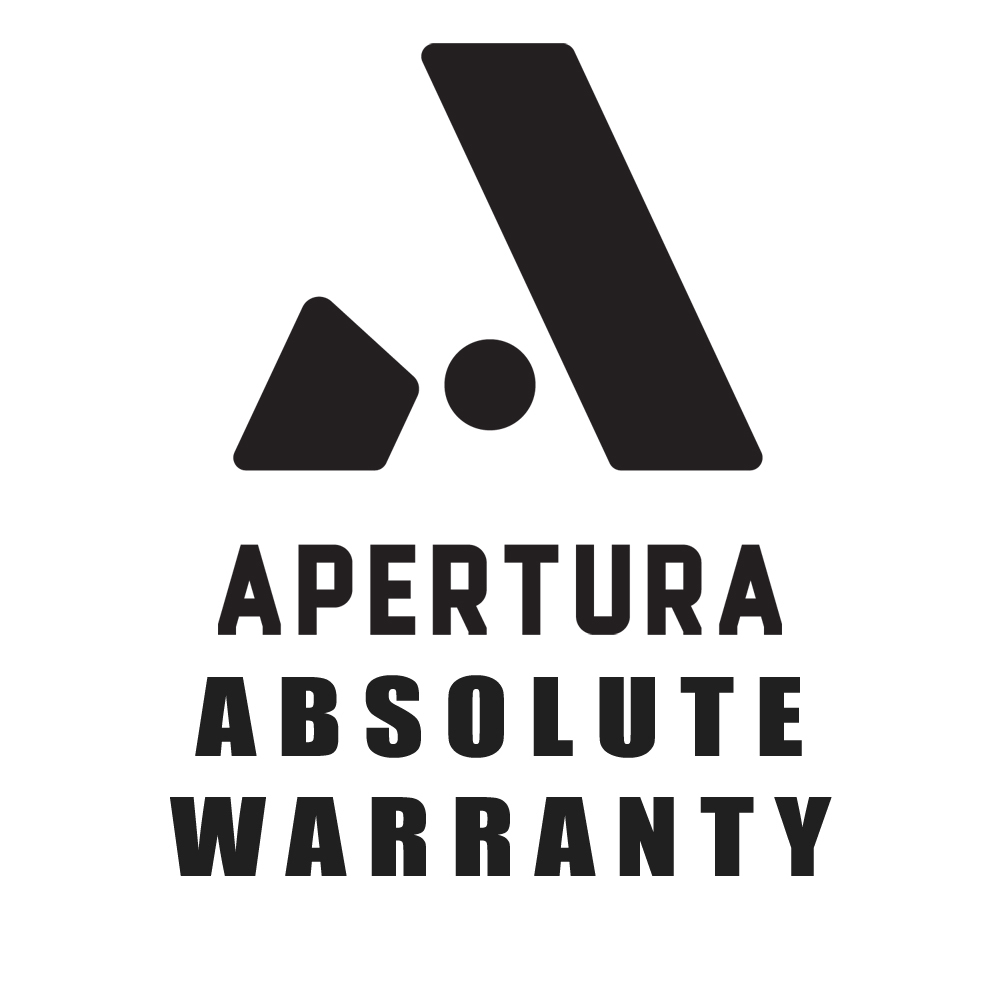Apertura 2" UV/IR Astrophotography Filter
Perfect Full Spectrum Imaging Companion — Apertura 2" UV/IR Astrophotography Filter
Shield your images from ultraviolet and infrared light with this astrophotography-grade filter! This high quality filter from Apertura provides your images with high transmission of the wavelengths you're after and precision blocking of the ones you're not. If enhancing your full-color images is your goal, then the 2" UV/IR Astrophotography Filter can give you a boost!
Full-spectrum imaging provides an excellent perspective on broadband targets and engaging takes on even a variety of narrowband targets! When you want to create these powerful images it may seem a completely unfiltered view is the way to go, however this is not the case. One Shot Color and monochrome sensors alike see much more of the light spectrum than we can, and this is where the Apertura 2" UV/IR Astrophotography Filter comes in. As the target of telescope optics is focusing the light we can see, the imperceptible UV and IR light is often less sharp (particularly with refractors). By blocking these softer wavelengths from your sensitive camera sensor you can see an increase in star and image sharpness, making your stellar full-color images even more stunning! With a precision off-band coating and Schott B270 substrate, Apertura has ensured your imaging system precisely cuts out the UV and IR spectrum while providing an average max transmission of 98% of the light you're interested in - including the all important H-alpha band!
Ultraviolet and Infrared Filtering: A Closer Look
How can you tell if a filter's filtering profile will work for your needs? What should you be looking at when comparing one filter's specifications to another? It's all in the chart! A filter's transmission chart gives you an in-depth at what wavelengths of light it is allowing through as well as how much of the total information on that wavelength is actually reaching your imaging sensor. While these graphs may seem a bit of an enigma at first, once you learn what to look for, interpreting is easy! We've put together a helpful guide that will quickly train your eye for these helpful graphs and have you reading and comparing filter charts in no time. You can find How to Read a Filter Transmission Chart and Choose a Filter alongside other guides, reviews, comparisons, and much more, in our Astronomy Hub!
Precision Filtering, Premium Construction, and Broadly Compatible
The Apertura 2" UV/IR Astrophotography Filter offers high-quality filtering performance and construction in a form factor that will fit just about any 2" filter solution on the market!
Superb Full Color Photos
Full color imaging is a great
approach for capturing a wide variety of targets, from broader band objects
like galaxies, planets, and stars, to more narrowband targets alike. Whether
you're creating these images with a one shot color (OSC) camera or a
monochrome camera using RGB filters, leaving the UV and IR spectrums
unattenuated can impact the quality of your images. That's where this filter
comes in! By blocking these problematic wavelengths while maintaining a very
high transmittance in the visible spectrum, the Apertura 2" UV/IR
Astrophotography Filter ensures you get a performance boost with virtually
no impact on the signal you actually want!
Wide Compatibility
This filter fits in a plethora of
2" filter options, making it easy to upgrade your camera's view with your
preferred solution. For those looking to use this as a luminance filter, or
just as part of a larger filter collection, this filter will fit in with the
popular
ZWO 7 Position Electronic Filter Wheel for 2" Filters
and
ZWO 5 Position Electronic Filter Wheel for 2" Filters
accessories that make swapping in your filters remotely, quick, and safely a
cinch. ZWO's
Gen 2 M42 x 0.75 Filter Drawer for 2" Filters
is another great option for multi-filter applications that can be used with
this offering from Apertura, allowing you to simply swap filters in and out.
The 2" UV/IR Astrophotography Filter is also perfect for built-in filter
cells, like those offered on the
Apertura 75Q Refractor Telescope
and
Apertura 90mm Triplet Refractor. Whichever solution is best suited for your imaging train, this filter has
you covered!
High Quality Construction
This filter features high
quality components from the base to the coating! The core of the Apertura 2"
UV/IR Astrophotography Filter is a 1.85 mm thick Schott B270 substrate which is known for
its excellent transparency. This helps ensure that the high-quality coating
is the only thing getting in the way of the incoming signal! Speaking of
coatings, this accessory's filtering layer is bonded using an Ion Assisted
Deposition process. This IAD technology gives the coating enhanced
durability to help keep this quality filter in your imaging tool kit for
years to come! This coating is designed with precision off-band blocking,
providing your imaging system with the exact filtering profile you're
looking for. Couple all this with a λ/4 and 60/40 surface flatness
and quality respectively, and you've got an excellent upgrade for your
astrophotography setup! This is mounted in a 5 mm tall filter cell featuring and is
threaded for common 2" filter cells, drawers, and wheels.
Comes with the Apertura Absolute Warranty
The Apertura Absolute Warranty provides two years of coverage against
product defects. After the initial two-year warranty expires, this product
qualifies for Apertura's Three-Year Accident Replacement Program. In
addition, the Apertura Absolute Warranty is transferable! Download a copy of
the
Apertura Absolute Warranty
for more information on this program, how to make a claim, and why it is
important to keep your original receipt and the product's original boxes and
packaging!
Astronomy Hub: Your one-stop-shop for Astrophotography Knowledge!
Our Gear Experts have compiled a wealth of information to help expand your astrophotography knowledge! Below you’ll find links to articles, videos and "how-to" guides. Just one more reason that our Astronomy Hub is a one-stop-shop for all your astronomy and astrophotography needs!
| How to Read a Filter Transmission Chart and Choose a Filter |
| Choosing the Best Deep Sky Camera |
| Choosing the Best Planetary Camera |

